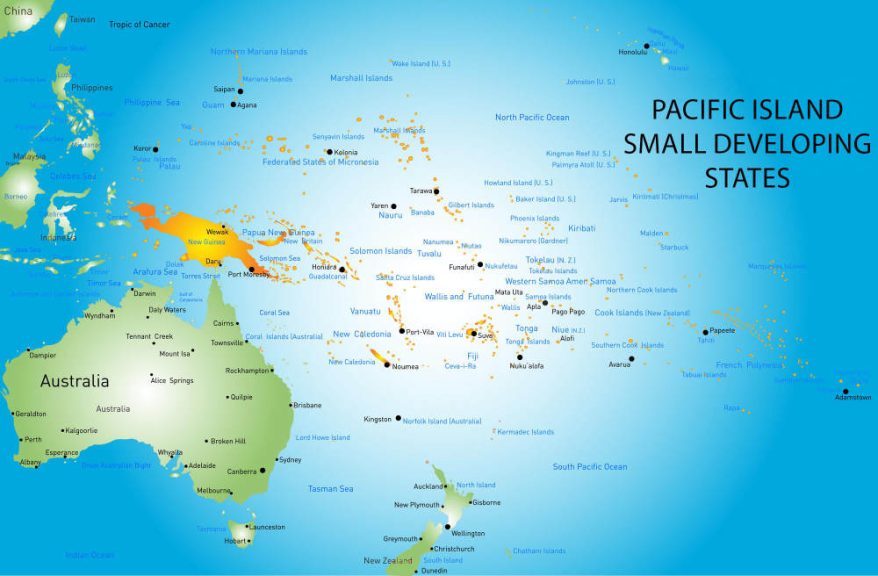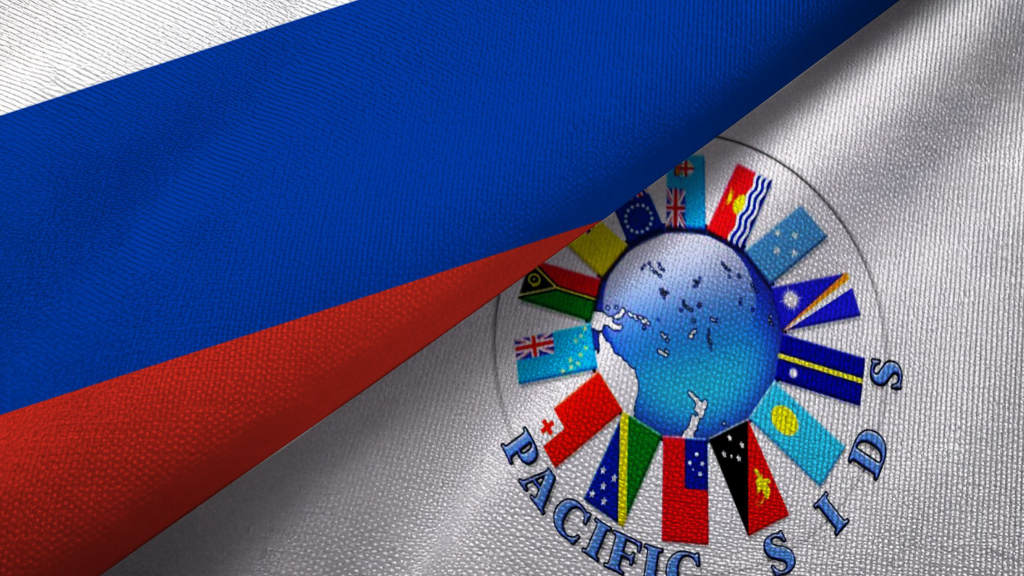The Russian Foreign Minister, Sergey Lavrov, has met with the multilateral group ‘Pacific Small Island Developing States’ (PSIDS), a dialogue mechanism that Lavrov has stated “has unequivocally established itself as a highly sought-after and effective platform for exchanging views, both on areas of bilateral collaboration and on pressing issues of regional and global agendas.”
The PSIDS includes Cook Islands, Federated State of Micronesia, Fiji, Kiribati, Nauru, Niue, Palau, Papua New Guinea, Marshall Islands, Samoa, Solomon Islands, Tonga, Tuvalu, and Vanuatu and is represented at the United Nations. Lavrov met the group at the UN headquarters in New York.
The PSIDS land area of these countries is small, with a combined 500,000 km², with Papua New Guinea making up most of this with a land area of 462,840 km². Samoa, in contrast, has a surface area of just 2,831 km². However, a defining characteristic of these nations is their vast ocean territory, which accounts for over 99% of their sovereign territory. The total ocean area covered by these states is immense, spanning 30 million km², making them attractive for negotiating fishing rights. Some have developed as tourism destinations and others as offshore financial centres. The PSIDS combined population is about 2.3 million. The combined GDP (PPP) of these countries is about US$4 billion.

Apart from fishing and tourism, the PSIDS countries are at the forefront of climate change, with rising sea levels threatening many. There have also been security issues in Papua New Guinea, although the country is also a candidate ASEAN member and has significant timber and mining potential.
Russia’s main interests will lie in the provision of security equipment, training and assistance, maritime concessions, and possible assistance with breakwater construction. Many have been in the political sphere of either Australia or the United States in previous years; however, China has been reaching out into the Pacific, with many of these countries recognizing China over Taiwan and receiving Belt & Road Initiative funding in exchange for this political stance, in addition to providing fishing rights. Russia is essentially following a similar strategy as it looks to boost its own diplomatic reach and garner political support from these small, yet Pacific-influential island nations.
Further Reading
Russia – APEC 2024 Multilateral Meetings & Declaration: Analysis

 Русский
Русский













